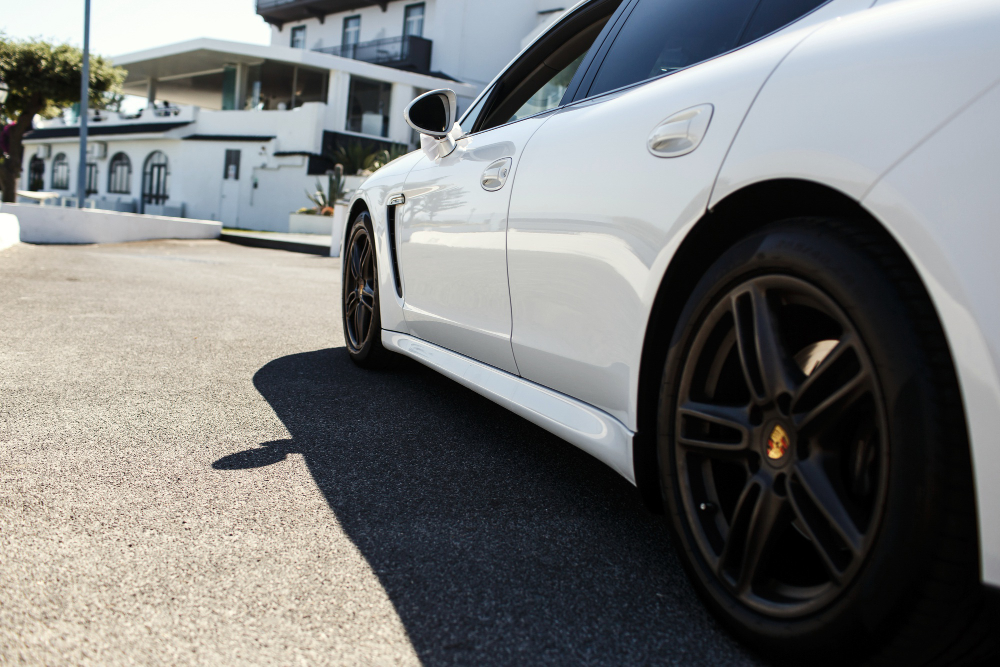Why do people buy salvage cars?
When it comes to buying salvage cars, people often wonder why anyone would choose to purchase a vehicle with a salvage title. However, there are several reasons why people buy salvage cars in the United States. One of the main reasons is the potential for significant cost savings. Salvage cars are typically sold at a fraction of the price of a similar vehicle with a clean title. This allows buyers to get a great deal on a car that may have minor damage or mechanical issues. Another reason people buy salvage cars is for the opportunity to rebuild or customize the vehicle. Salvage cars provide a blank canvas for car enthusiasts to create their dream car, whether it’s restoring a classic or modifying a modern vehicle. Additionally, some people buy salvage cars for parts. Salvage cars often have valuable components that can be used to repair other vehicles, saving the buyer money in the long run. Overall, while buying salvage cars may not be for everyone, there are clear benefits and opportunities that attract people to explore this market.
Common misconceptions about salvage cars
When it comes to salvage vehicles, there are several common misconceptions that potential buyers often have. One of the biggest misconceptions is that salvage cars are always in poor condition and not worth investing in. However, this is not necessarily true. While salvage cars have been damaged in some way, they can still be repaired and made roadworthy again. Another misconception is that salvage cars have a lower resale value compared to regular used cars. While it is true that salvage cars may have a lower resale value, this is not always the case. The value of a salvage car depends on various factors such as the extent of the damage, the make and model of the car, and the availability of parts. It is important for buyers to research and assess the specific salvage car they are interested in to determine its potential value. By debunking these common misconceptions, potential buyers can make informed decisions when considering salvage vehicles.
Mistake 1: Not Understanding the Salvage Title
What is a salvage title?
A salvage title is a designation given to a vehicle that has been declared a total loss by an insurance company. This means that the cost of repairing the vehicle exceeds its value. Salvage cars are often sold at auction to individuals or dealers who are willing to repair and resell them. However, there are several common mistakes that buyers should avoid when purchasing salvage cars.
Importance of understanding the salvage title
Understanding the salvage title is crucial when it comes to buying salvage cars. Many people make the mistake of overlooking the importance of this document, which can lead to costly and frustrating experiences. The salvage title provides valuable information about the car’s history, including whether it has been involved in a major accident, flood, or other significant damage. By understanding the salvage title, buyers can make informed decisions and avoid potential risks. It is essential to thoroughly inspect the car and consider factors such as repair costs and insurance availability. When it comes to car salvaging, knowledge is power, and having a clear understanding of the salvage title is the first step towards a successful purchase.
Risks of buying a salvage car without understanding the title
Buying a salvage car without understanding the title can pose significant risks. It is crucial to be aware of the potential pitfalls associated with purchasing a salvage car. One of the main risks is the possibility of hidden damage that may not be immediately apparent. Without a thorough understanding of the title, buyers may unknowingly invest in a vehicle with severe structural or mechanical issues. This can lead to expensive repairs and even compromise the safety of the car. Additionally, salvage cars often have limited resale value, making it difficult to recoup the initial investment. It is essential for buyers to educate themselves about salvage car titles and consult with professionals to make informed decisions.
Mistake 2: Not Inspecting the Vehicle Thoroughly

Importance of thorough inspection
When it comes to buying salvage cars, the importance of thorough inspection cannot be overstated. Conducting a comprehensive inspection is crucial to ensure that you are aware of the true condition of the vehicle and any potential issues it may have. By thoroughly inspecting a salvage car, you can identify hidden damage, assess the extent of repairs needed, and determine if it is a suitable candidate for restoration. This step is especially important if you are planning to restore a salvage title car. To help you make the best decision, here are some tips for conducting a thorough inspection:
Common issues to look for in salvage cars
When buying salvage cars, it is crucial to be aware of common issues that may arise. One of the key aspects to consider is the signs of a revived salvage vehicle. These signs can indicate whether a salvage car has undergone extensive repairs or has been rebuilt. It is important to thoroughly inspect the vehicle for any indications of previous damage or poor workmanship. Look out for any irregularities in the paint job, such as mismatched colors or overspray, as these can be signs of a revived salvage car. Additionally, check for any signs of frame damage or structural issues, as these can greatly affect the safety and performance of the vehicle. By paying attention to these common issues, you can make an informed decision when purchasing a salvage car.
How to conduct a proper inspection
When it comes to buying salvage cars, conducting a proper inspection is crucial. This step ensures that you are making an informed decision and avoiding any potential pitfalls. During the inspection process, it is important to pay attention to key areas such as the engine, transmission, suspension, and frame. Additionally, it is essential to check for any signs of previous damage or repairs. By thoroughly inspecting the vehicle, you can identify any potential issues and make an informed decision before purchasing. Don’t underestimate the importance of a thorough inspection when buying a salvage car. It can save you from costly repairs and disappointment down the road.
Mistake 3: Not Considering Repair Costs
Factors to consider when estimating repair costs
When estimating repair costs for salvage cars, there are several factors that need to be considered. First and foremost, it is important to assess the extent of the damage. This includes evaluating the severity of any structural damage, as well as identifying any cosmetic issues. Additionally, the availability of parts is a crucial factor to consider. Some salvage cars may require rare or hard-to-find parts, which can significantly impact the overall repair costs. Another important factor is the expertise required for the repairs. Certain types of damage, such as hail damage, may require specialized knowledge and skills. It is also worth noting that the year of the car can affect repair costs, as newer models may have more expensive parts. Finally, it is essential to research the market value of similar salvage cars, especially for hail damaged cars for sale in 2018. By considering these factors, buyers can make informed decisions and avoid common mistakes when buying salvage cars.
Common repair expenses for salvage cars
When it comes to buying salvage cars, there are several common repair expenses that buyers should be aware of. One of the most important things to keep in mind is that salvage cars often require extensive repairs due to their previous damage. This can include repairing or replacing major components such as the engine, transmission, or suspension. Additionally, salvage cars may have hidden issues that are not immediately apparent, such as electrical problems or structural damage. It is essential for buyers to thoroughly inspect the vehicle and consider the potential repair costs before making a purchase. By understanding the common repair expenses associated with salvage cars, buyers can make informed decisions and avoid costly mistakes.
How to budget for repairs
When it comes to budgeting for repairs on salvage cars, there are a few key factors to consider. First, it’s important to have a thorough inspection of the vehicle done before making a purchase. This will help identify any potential issues and give you a better idea of the overall repair costs. Additionally, it’s crucial to research the availability and cost of parts for the specific make and model of the salvage car you’re interested in. Certain cars may have more expensive or harder-to-find parts, which can significantly impact your budget. Lastly, it’s recommended to set aside a contingency fund for unexpected repairs that may arise after the purchase. By budgeting for these factors and being prepared, you can make a more informed decision when buying salvage cars.
Mistake 4: Not Researching the Vehicle’s History
Why researching the vehicle’s history is important
When it comes to buying salvage cars, one of the most important steps is researching the vehicle’s history. This is crucial because it allows you to uncover any potential issues or problems that the car may have had in the past. By conducting thorough research, you can avoid buying a salvage car with hidden damages or a questionable past. It is recommended to check the vehicle’s title history, accident records, and maintenance records. Pay attention to any major accidents, flood damage, or previous repairs. Additionally, researching the vehicle’s history can give you an idea of its market value and help you negotiate a fair price. Remember, knowledge is power when it comes to buying salvage cars, so take the time to do your research before making a purchase.
How to check the vehicle’s history
When buying a salvage car, it is crucial to thoroughly check the vehicle’s history. This step is essential to avoid potential pitfalls and ensure a wise investment. By examining the vehicle’s history, you can uncover important information such as previous accidents, flood damage, or any major repairs. One effective way to check the history is by obtaining a vehicle history report from a reputable source. This report provides valuable insights into the car’s past, including its title status, mileage, and any reported incidents. It is also recommended to inspect the vehicle identification number (VIN) and compare it with the information provided in the report. Additionally, consider consulting a professional mechanic or an automotive expert for a thorough evaluation. By taking these precautions, you can make an informed decision and avoid common mistakes when buying salvage cars.
Red flags to look out for in the history report
When buying salvage cars, it is crucial to be aware of red flags in the history report. The history report provides valuable information about the car’s past, including any accidents, repairs, or title issues. By carefully reviewing the history report, you can avoid potential problems and make an informed decision. Here are some red flags to look out for:
1. Accidents: Check if the car has been involved in any major accidents. This information can help you assess the extent of damage and determine if the car is worth buying.
2. Flood Damage: Look for signs of flood damage in the history report. Flood-damaged cars can have hidden issues that may not be immediately apparent, such as electrical problems or mold.
3. Salvage Title: A salvage title indicates that the car has been declared a total loss by an insurance company. It is important to understand the reason for the salvage title and assess the extent of the damage before purchasing.
4. Odometer Tampering: Verify the accuracy of the odometer reading in the history report. Odometer tampering is illegal and can affect the value and reliability of the car.
By knowing what to look for in the history report, you can avoid potential pitfalls and ensure a successful salvage car purchase.
Mistake 5: Not Consulting a Professional
Benefits of consulting a professional
When it comes to buying salvage cars, one of the most important steps is consulting a professional. There are several benefits to seeking the expertise of a professional in this field. Firstly, a professional can provide valuable guidance and advice throughout the entire buying process. They have extensive knowledge and experience in assessing the condition of salvage cars and can help you make an informed decision. Additionally, a professional can help you navigate the complex paperwork and legal requirements involved in purchasing salvage cars. They can ensure that all necessary documentation is in order and that you are aware of any potential risks or liabilities. By consulting a professional, you can minimize the chances of making costly mistakes and increase your chances of finding a salvage car that meets your needs and budget.
Finding a reliable mechanic or inspector
Finding a reliable mechanic or inspector is crucial when buying salvage cars. These vehicles have often been involved in accidents or have suffered extensive damage, so it’s important to have an expert assess their condition. A reliable mechanic or inspector can thoroughly inspect the salvage car and provide an unbiased evaluation of its overall condition, including any potential hidden issues. They can identify structural damage, mechanical problems, and other issues that may not be apparent to the untrained eye. By hiring a professional, you can ensure that you make an informed decision and avoid costly mistakes when purchasing a salvage car.
Questions to ask the professional
When buying salvage cars, it’s crucial to ask the right questions to a professional. This will ensure that you make an informed decision and avoid potential pitfalls. Here are some important questions to ask:
1. What is the extent of the damage?
2. Has the car been repaired before?
3. Are there any hidden issues?
4. Can I see the vehicle history report?
5. What is the salvage title status?
By asking these questions, you can gain valuable insights into the condition of the salvage car and assess if it’s a suitable purchase. Remember, knowledge is power when it comes to buying salvage cars.
Mistake 6: Not Considering Insurance and Resale Value
Insurance considerations for salvage cars
When it comes to buying salvage cars, insurance considerations are crucial. Salvage cars are vehicles that have been damaged and deemed a total loss by insurance companies. As a result, obtaining insurance for these cars can be more challenging compared to buying a regular used car. Insurance companies may have stricter requirements and higher premiums for salvage cars due to the increased risks involved. It is important for buyers to research and understand the insurance options available for salvage cars to ensure they are adequately covered in case of accidents or damages. Additionally, buyers should consider the potential impact salvage cars may have on their future insurance premiums and resale value. Taking these insurance considerations into account will help buyers make informed decisions and avoid costly mistakes when purchasing salvage cars.
Factors that affect the resale value of salvage cars
Factors that affect the resale value of salvage cars include the extent of the damage, the make and model of the car, and the availability of replacement parts. One important consideration when buying a salvage title car is knowing when is the best time to buy. Timing can greatly affect the price and availability of salvage cars. It is recommended to do thorough research and keep an eye on salvage car auctions to find the best deals. Additionally, it is crucial to inspect the car carefully and consider the cost of repairs before making a purchase. By understanding these factors and being well-informed, buyers can make a more informed decision when buying salvage cars.
Tips for maximizing the resale value
When it comes to maximizing the resale value of salvage cars, there are a few key tips to keep in mind. First and foremost, it is important to find dependable cars and parts. This ensures that the vehicle is in good condition and will appeal to potential buyers. Additionally, conducting thorough research on the market value of similar salvage cars can help determine a competitive asking price. Another tip is to invest in necessary repairs and upgrades to enhance the overall appearance and functionality of the vehicle. This can include fixing any mechanical issues, replacing damaged parts, and improving the interior and exterior. Lastly, effective marketing and advertising strategies can greatly impact the resale value. Utilizing online platforms, social media, and local advertisements can attract a wider audience and increase the chances of finding a potential buyer. By following these tips, sellers can maximize the resale value of salvage cars and increase their chances of a successful sale.















